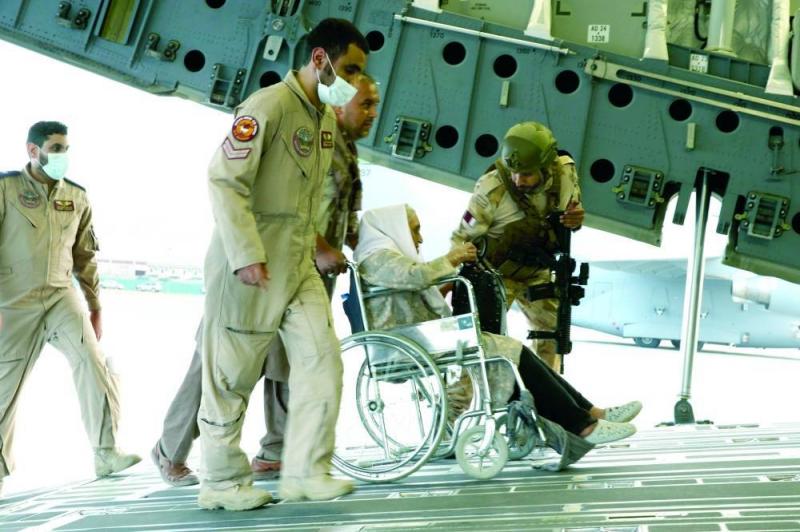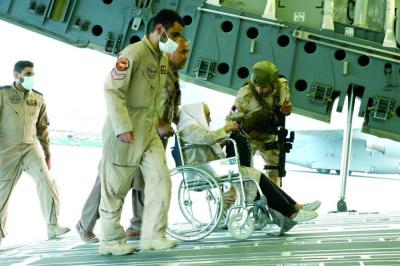A report by France 24 highlighted Doha's ongoing efforts in evacuating individuals from Afghanistan, which included dozens of Afghan athletes, several of whom were women. This was part of a series of evacuation operations organized by the Qatari government in collaboration with FIFA. The report emphasized that Qatar Airways represents the only reliable means of exit for those wishing to leave Afghanistan.
Another article published in a Spanish political science magazine showcased the advantages of Qatari foreign policy and the significant successes it has achieved. It noted that Qatar's role as an integrated mediator has shifted towards a more independent and active role in this new foreign policy context. It pointed out that Doha has employed soft power tools to enhance its position in the Arab and Islamic arenas, particularly through mediation in regional conflicts, establishing an Arabic television channel (Al Jazeera), and creating the Qatar Foundation to promote culture, education, and sports as part of the country's domestic development and external influence efforts.
#### Evacuation Efforts
The France 24 report highlighted Qatar's continued evacuation efforts from Afghanistan, mentioning that dozens of Afghan athletes—including several women—departed the country on a flight from Kabul to Doha, as part of the evacuation operations organized by the Qatari government in collaboration with FIFA. The report stated, "The flight included 369 passengers, among whom over 55 were evacuated in coordination with FIFA." These flights have become one of the only reliable escape routes for Afghans holding visas or foreign citizens. Following the evacuation of music students and their teachers on October 5, it was now the turn of sports stars, including female basketball player Tahira Yousufi from Herat, who expressed her joy, saying, "It is a wonderful day for all of us, because after many weeks of waiting, we can finally start our journey, and we are very happy."
#### Characteristics of Qatari Policy
Additionally, the article in the Spanish political science magazine emphasized a distinctive feature of Qatari foreign policy, which is its adoption of an integrated mediation role and the employment of soft power tools. These include mediating in regional conflicts, establishing the Al Jazeera television network, and promoting culture, education, and sports through the Qatar Foundation.
It continued, "The first pillar that characterizes Qatari foreign policy is its commitment to mediation in regional conflicts, where the state's foreign policy is based on the principle of promoting international peace and security by encouraging peaceful resolutions to international conflicts." Hence, Qatar has mediated in numerous disputes, such as in Lebanon (2008), Yemen (2008-2010), Darfur (2008-2010), Sudan and Chad (2009), Djibouti and Eritrea (2010), and Palestine (2012), thus helping to enhance its international image and strengthen its position among countries.
Moreover, the report highlighted that this type of mediation is also part of Doha's strategy to maintain connections and open communication channels, both with like-minded countries and rivals. Qatar's foreign policy has been highly centralized and characterized by a solid core involved in its conception, making decision-making and implementation easier.
The report went on to detail that the second pillar in the soft power strategy is Al Jazeera, which has become a crucial element in the soft power strategy for increasing its international reach. Established in 1996, the channel has become the media network with the largest viewership in the Arab world. This raised Qatar's popularity significantly, which helped transform this popularity into political standing.
The report added that Qatar has emerged as an innovative and dynamic actor capable of mediating various conflicts in the region and has enhanced its global role thanks to the substantial resources provided by its gas reserves and its political and economic capabilities. The acknowledgment of its international standing was underscored by Qatar's election to the United Nations Security Council in 2006 and 2007 and its active role during the Arab Spring starting in 2011. According to researcher Ulrichsen, "The combination of wealth and vision supported Qatar's strategic success and allowed it to surpass the traditional great powers in the Arab world."
Subsequently, the report stated that Qatar's role as an integrated mediator has gradually evolved into a more independent and active role in this new foreign policy context, utilizing soft power tools to enhance its image in the Arab and Islamic domains.
#### Qatar Foundation
Moreover, the report indicated that the third main strategy promoting a positive image of Qatar internationally is the promotion of culture, education, and sports through the Qatar Foundation for Education, Science, and Community Development, aligning with Qatar's National Vision 2030. This foundation was established primarily to train Qatari generations in education, science, and research fields, as well as attract talent and position the country as an international center for research and development.
The establishment of the Qatar Foundation and the Education City project are among Qatar's most significant undertakings. The main objective of the Qatar Foundation is to "support Qatar in its journey from a carbon economy to a knowledge-based economy, unleashing human potential," based on three pillars: education, research, and community development. The foundation has a campus in Doha that hosts several foreign universities, including Georgetown University, Northwestern University, Virginia Commonwealth University, Weill Cornell Medicine, Texas A&M University, Carnegie Mellon University, HEC Paris, and University College London, as well as the recently opened Qatar National Library.
The report concluded that the momentum provided by the Qatar Foundation and Education City, along with mediation and diplomacy, has become one of the features of Qatar's global image. The state showcases a distinctive approach employed by many small countries to differentiate themselves in the global landscape, both regionally and internationally. Doha has developed its strategies to achieve prominence and influence in the region and has enhanced its capabilities by hosting numerous major sporting events. In 2010, Qatar was chosen to host the 2022 FIFA World Cup.




